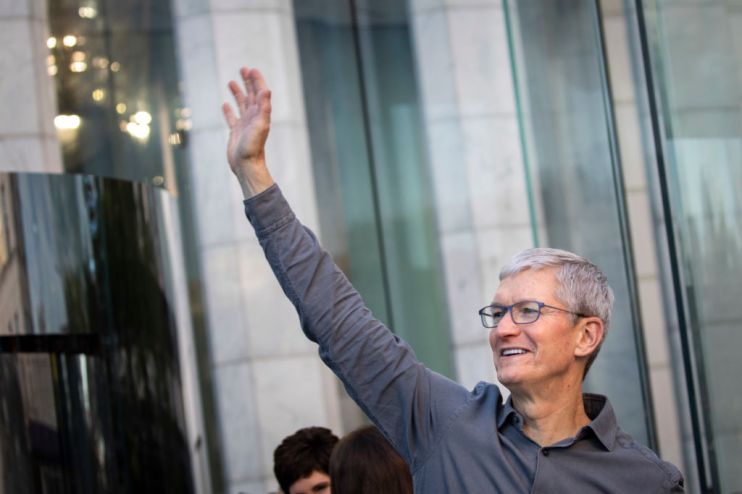Apple wins appeal against EU’s €13bn Irish tax fine

Apple has won an appeal against the European Commission over €13.1bn in back taxes it was ordered to pay the Irish government in 2016.
The tech firm was fighting alongside Ireland to challenge the EU’s ruling, which said the pair violated state aid rules in a tax deal that permitted Apple to record its sales through two Irish units.
The General Court of the European Union annulled the decision taken by the Commission in favour of Apple, saying the EU had not done enough to prove Apple and Ireland had received advantages as part of the deal.
“The General Court annuls the contested decision because the Commission did not succeed in showing to the requisite legal standard that there was an advantage for the purposes of Article 107(1) TFEU1,” the judges said, referring to EU competition rules.
The move will be a significant blow to EU competition commissioner Margrethe Vestager, whose legacy of ruling major technology firms with an iron fist was largely down to her success in achieving this tax penalty against Apple.
The 2016 ruling and the record sum was part of the European Commission’s crackdown on sweetheart tax deals between multinationals and some EU countries.
In its order four years ago, the European Commission said Apple had benefited from illegal state aid via two Irish tax rulings that artificially reduced its tax burden for over two decades — dropping as low as 0.005 per cent in 2014.
Today’s defeat for Vestager could weaken or delay the EU’s pending state aid cases against Ikea’s and Nike’s deals with the Netherlands.
The commissioner saw the same court last year overturn her demand for Starbucks to pay up to €30m in Dutch back taxes, while in another case the court threw out her ruling against a Belgian tax scheme for 39 multinationals.
Vestager said the Commission would look at the ruling and assess its next steps.
She said in a statement: “The Commission will continue to look at aggressive tax planning measures under EU state aid rules to assess whether they result in illegal state aid.
“At the same time, state aid enforcement needs to go hand in hand with a change in corporate philosophies and the right legislation to address loopholes and ensure transparency.”
The Apple tax was by far Vestager’s largest standalone penalty in her wheelhouse, having successfully levied more than $10bn in fines against rival tech giant Google in three separate cases over the last decade.
“We thank the General Court for their time and consideration of the facts. We are pleased they have annulled the Commission’s case,” an Apple spokesperson said today.
“This case was not about how much tax we pay, but where we are required to pay it. We’re proud to be the largest taxpayer in the world as we know the important role tax payments play in society. Changes in how a multinational company’s income tax payments are split between different countries require a global solution, and Apple encourages this work to continue.”
Some critics have viewed Apple’s tax dispute with the European Commission as a negative for Ireland, despite the Irish government joining Apple in the appeal.
Though €13.1bn from Apple would have made a sizeable contribution to the country’s finances, Ireland has also used its reputation as a low-tax regime for major technology companies to its advantage.
Analysts have said the government will be ridiculed by opposition parties over its decision to not take the cash, which could cover at least half of a budget deficit forecast to balloon to as much as 10 per cent of GDP this year, Reuters earlier reported.
Apple said it spent over €13bn with 4,500 suppliers in the EU last year, supporting more than 1.8m jobs.
“Ireland has always been clear that there was no special treatment provided to the two Apple companies. The correct amount … was charged in line with normal Irish taxation rules,” the country’s finance ministry said in a statement as the ruling was handed down.
Ireland had appealed the decision “on the basis that Ireland granted no state aid, and the decision today from the Court supports that view,” it added.
Today’s ruling may also prompt questions about the future of plans in the UK, by the OECD and other countries to impose digital services taxes on multinational technology companies like Apple.
US officials have complained the rules will unfairly target US companies such as Google and Facebook, while the UK is keen to regain a slice of corporate tax that often falls away with firms like Apple stationing their headquarters in Dublin.
Accounts filed last week showed Apple’s UK retail arm paid just £6.2m in tax last year, despite raking in sales of almost £1.4bn.
The defeated side can still appeal today’s ruling on points of law to the EU Court of Justice, Europe’s highest court.